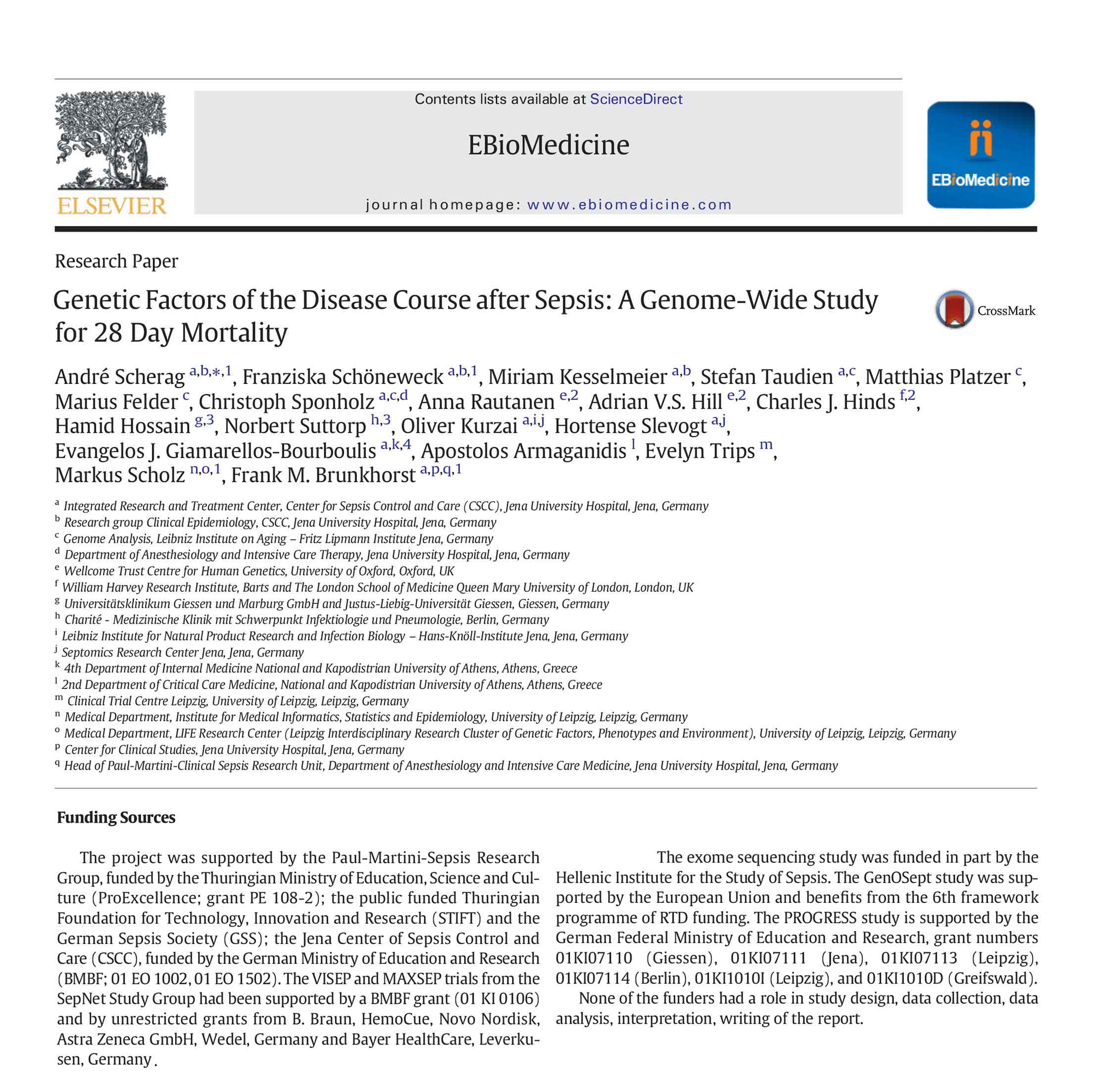André Scherag, Franziska Schöneweck, Miriam Kesselmeier, Stefan Taudien, Matthias Platzer, Marius Felder, Christoph Sponholz, Anna Rautanen, Adrian V S Hill, Charles J Hinds, Hamid Hossain, Norbert Suttorp, Oliver Kurzai, Hortense Slevogt, Evangelos J. Giamarellos-Bourboulis, , Apostolos Armaganidis, Evelyn Trips, Markus Scholz, Frank M Brunkhorst
eBioMedicine 2016 Oct;12:239-246
DOI 10.1016/j.ebiom.2016.08.043Download pdf 🡇
Funding
The project was supported by the Paul-Martini-Sepsis Research Group, funded by the Thuringian Ministry of Education, Science and Culture (ProExcellence; grant PE 108-2); the public funded Thuringian Foundation for Technology, Innovation and Research (STIFT) and the German Sepsis Society (GSS); the Jena Center of Sepsis Control and Care (CSCC), funded by the German Ministry of Education and Research (BMBF; 01 EO 1002, 01 EO 1502). The VISEP and MAXSEP trials from the SepNet Study Group had been supported by a BMBF grant (01 KI 0106) and by unrestricted grants from B. Braun, HemoCue, Novo Nordisk, Astra Zeneca GmbH, Wedel, Germany and Bayer HealthCare, Leverkusen, Germany. The exome sequencing study was funded in part by the Hellenic Institute for the Study of Sepsis. The GenOSept study was supported by the European Union and benefits from the 6th framework programme of RTD funding. The PROGRESS study is supported by the German Federal Ministry of Education and Research, grant numbers 01KI07110 (Giessen), 01KI07111 (Jena), 01KI07113 (Leipzig), 01KI07114 (Berlin), 01KI1010I (Leipzig), and 01KI1010D (Greifswald). None of the funders had a role in study design, data collection, data analysis, interpretation, writing of the report.
Keywords: Exome; Genome-wide association study; Host response; Mortality; Sepsis

